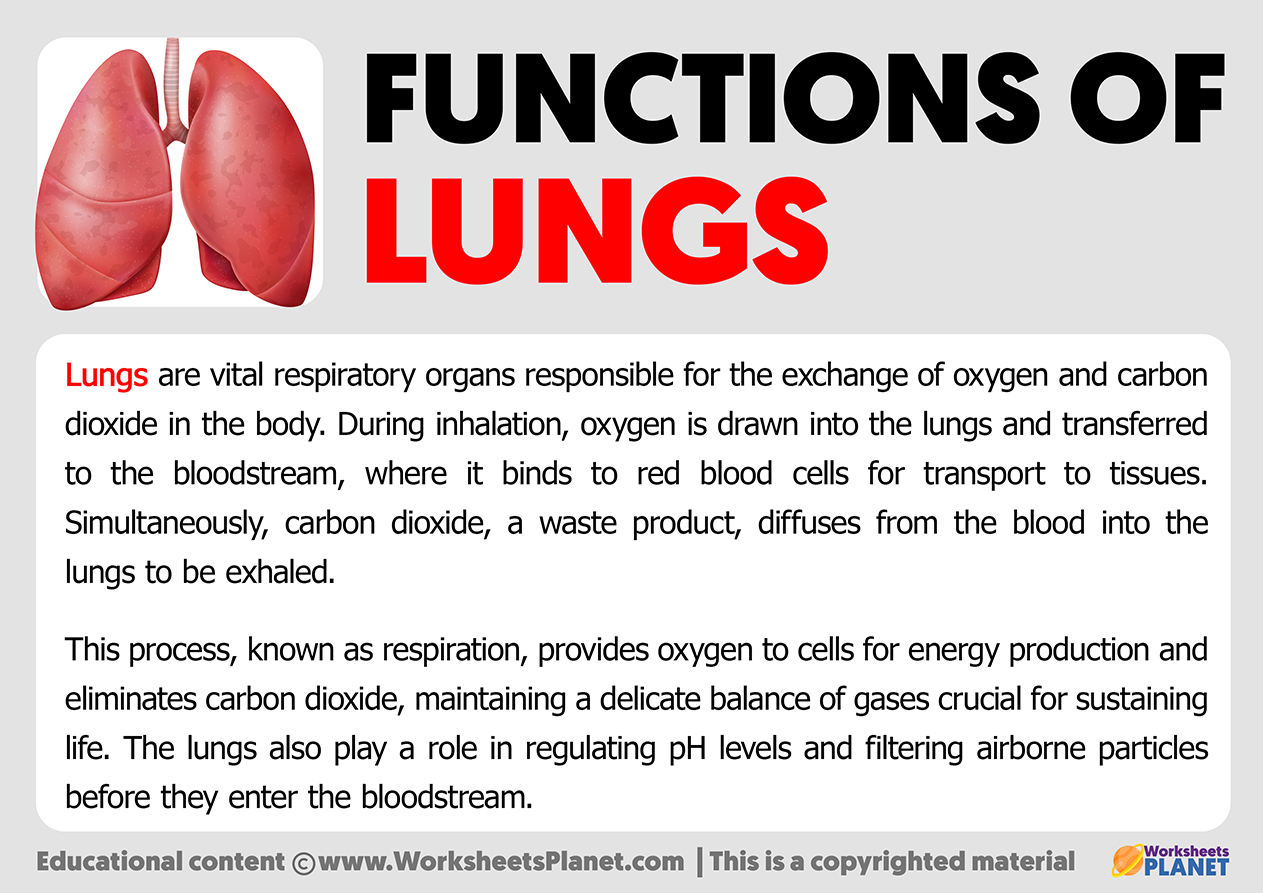Lungs are vital respiratory organs responsible for the exchange of oxygen and carbon dioxide in the body. During inhalation, oxygen is drawn into the lungs and transferred to the bloodstream, where it binds to red blood cells for transport to tissues.

Simultaneously, carbon dioxide, a waste product, diffuses from the blood into the lungs to be exhaled.
This process, known as respiration, provides oxygen to cells for energy production and eliminates carbon dioxide, maintaining a delicate balance of gases crucial for sustaining life. The lungs also play a role in regulating pH levels and filtering airborne particles before they enter the bloodstream.

